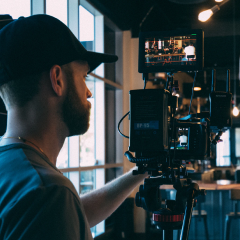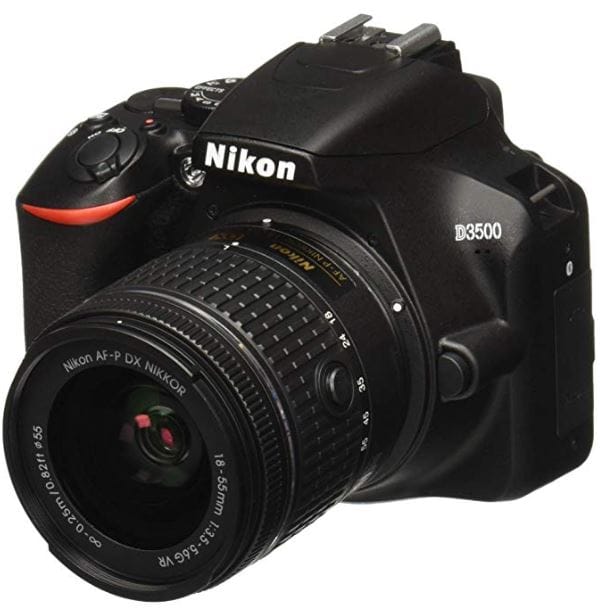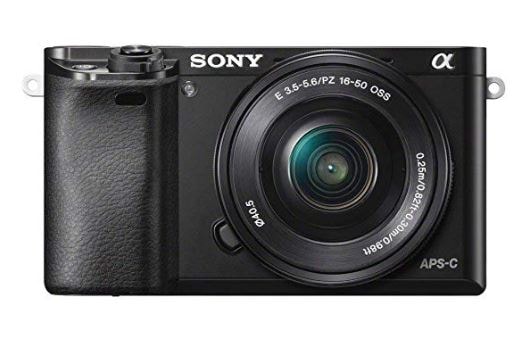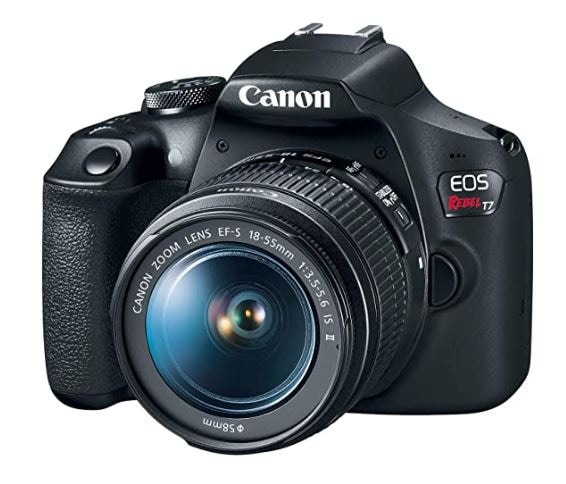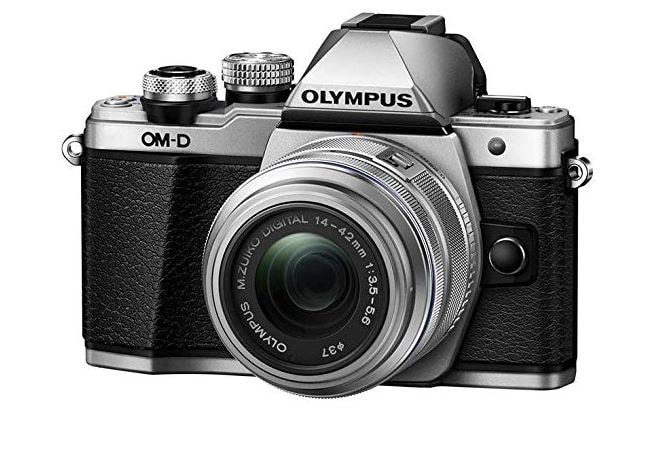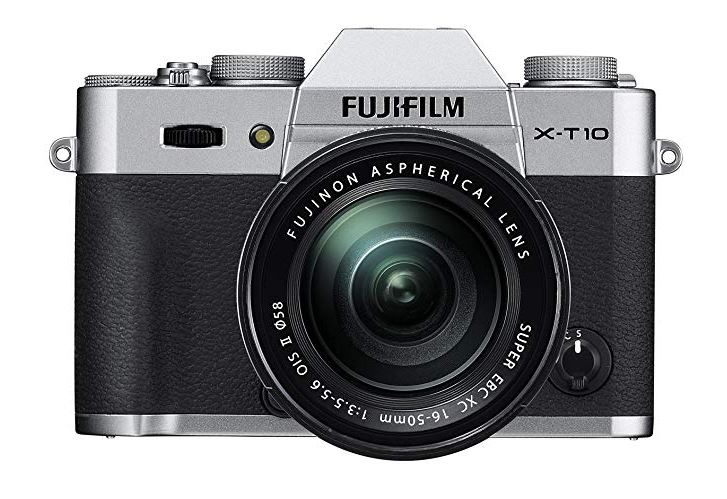Best Entry-Level Camera for Beginners 2024 | Reviews
Mar 27, 2024• Proven solutions
If you are just getting started in the world of videography and photography, you may be curious about your options. What is the best camera for beginners to use? Can you find the best entry level camera without spending a lot of money on it?
In this article, we are going to share what you need to look for in a great camera. Plus, we’re going to help you look at the different digital cameras for beginners so that you can find one that is right for you and your needs.
Part 1: How Do I Choose a Camera
There are hundreds of cameras available to choose from. How do you know which one is going to be right for your purposes? Here’s a quick look at some of the most important traits that you’ll want to keep an eye out for during your search.
- Portability: If you want to make sure that you can take your camera with you everywhere, then a simple point and click option may be perfect for what you’re looking for. While these typically have a fixed lens, the technology for these cameras have gotten a lot better at providing flexibility and excellent results, as well. In many cases, beginners benefit from using a simple point-and-click camera at first.
- Budget: You always want to be sure that you look at price when you’re looking at beginner cameras. More often than not, you’re going to want to get something that is relatively affordable without sacrificing quality. You may not know whether or not you want to pursue this whole picture and video hobby, and a cheaper camera will make it easier to sell if you find it’s not for you.
- Lenses: If you’re someone that is looking to step into something a little more complicated, you may also want the flexibility to switch out the lenses that you’re using. Point and click cameras typically don’t have this capability, but you can still find some reasonably affordable options that allow for you to switch lenses in and out.
Camera Options for Beginners
1. Nikon D3500
Specifications:
- 5 Frames Per Second
- Automatic Focus
- 100-25600 ISO
- 7 megapixels maximum resolution
- 3x Optical Zoom
- 86 lbs.
The Nikon D3500 is a very easy to use digital camera for beginners that allows for “point and shoot” use. Its compact and lightweight design makes it easy for you to take, wherever you may be headed. Not only can you take pictures with it, but it does have the ability to film 1080P full HD videos if you want it to, as well.
Pros: High-quality white balance, easy to shoot with one hand, clear lens, and easy to clean and maintain.
Cons: The immense number of menu options can be confusing to beginner photographers. No touch screen available for use. No microphone port; videos only use the on-board mic.
2. Sony A6000
Specifications:
- Focus sensitivity range EV 0 to EV 20.
- ISO 100 to 25600 (options to expand to 51200)
- Compatible with all Sony E mount lenses
- 24 MP APS C CMOS Sensor
- 11 FPS continuous shooting
- 3 inch LCD with tilting capabilities
- 360 picture battery life
Get creative and have fun with this top-end mirrorless DSLR that can get you the best pictures at the highest speeds. Whether candid, fast action, or still, this camera has one of the world’s fastest autofocus options available. The A6000 can get 11 pictures in one second, is simple to use, and small enough to put in a pocket.
Pros: The a6000 has multiple lenses and is very easy to adapt to your photography style. Many people consider it to be the best entry-level camera for the price. It can also use a remote, so you can get in the picture if you please.
Cons: Some users complain of battery drain. People with more experience may be concerned with the fact that you can’t do bracketed shoots with a delay. The unit also overheats on occasion.
3. EOS Rebel T7
Specifications:
- 1 Megapixels
- CMOS sensor of 100-6400, with expandability to 12800.
- Wi-Fi and NFC technology built-in
- 9 point autofocus system
- 95% viewing coverage with optical viewfinder
- 3 inch LCD screen
The EOS Rebel T7 is an excellent way for people who typically share pictures via their mobile devices to take those pictures with a high-end camera. The fast autofocus, high-end sensor, and wireless connectivity allow for you to get the perfect shot every single time that you’re out and about.
Pros: The EOS rebel T7 can shoot rolls, stills, and video. It has easy to use Wi-Fi capability and has excellent autofocus and solid zooms. It’s also built well, so it’s a tremendous substantial-duty option for a camera.
Cons: It has a fixed lens, and you can only use Canon flashes and lenses with this particular camera. It also doesn’t have Bluetooth capability, so you aren’t going to be able to use a remote camera trigger unless it’s USB connection to the device.
4. Olympus OM-D E-M10 Mark II Mirrorless Camera
Specifications:
- OLED electronic viewfinder with up to .62X magnification available.
- 5 Axis Image stabilization
- Autofocus with multiple focusing points.
- Silent mode disables any noises
- 5 frames a second
If you’re looking for a camera that is both sophisticated and simple to use, then the Olympus OM-D E-M10 Mark II is a straightforward option that you can utilize. Both professionals and novices can utilize the Mark II because of how simple it is to use and how intuitive the setup is.
Pros: If you’re using this camera, it has a low upfront cost to it. Multiple lenses work with the camera, and the “retro” design also makes it a very heavy duty. Both pictures and videos look crisp and smooth, and you’ll get high-quality results every time you use it.
Cons: The battery life isn’t the greatest; most users recommend that you get an extra battery (which are reasonably affordable). The camera isn’t huge, and moving targets may get blurry, even with the autofocus. Some people find the navigation screen confusing; others do not.
5. Fujifilm X-T10 Silver Mirrorless Digital Camera
Specifications:
- 16 Megapixels
- X-Trans CMOS Sensor
- Multiple autofocus options, including Single, Zone, Wide x AF-S, and AF-C
- 36M dot OLED viewfinder with 0.62x Magnification
- Compact body with handling and grip that’s well-balanced.
- Flash is built-in and pops up when it is
The Fujifilm X-T10 is designed for the photographer that is on the go. With multiple menu options and easy-to-use settings, you’re able to customize this camera and use it for whatever sorts of pictures that you’re looking to take. This camera is designed for functionality, and you’ll find that you can use it anytime, anywhere, due to its compact size.
Pros: You’re easily able to change the lenses in the Fujifilm X-T10, and it’s fairly easy to use overall. There are a myriad of menu options available, so you can do filters and colors however you want. And, its small size allows for maximum portability.
Cons: Some people don’t like the XC kit lens due to distortion around the edges; others have found that it can be adjusted via the multiple settings within menus. If you’re using the device rather frequently, it is also likely that the auto focus may start to fail after a period of time.
Frequently Asked Questions
1. Is Canon or Nikon better for beginners?
In all honesty, it depends on what you’re looking for. Similar models are similarly priced, which makes a choice all the more difficult. Both Canon and Nikon make beginner level cameras – the T7i and the D5600, respectively.
The T7i has a better sensor and ends up being much lighter than the Canon model. But, on the other hand, the shooting FPS and the number of autofocus points are better on the Nikon D5600. So, if you have some preferences related to what you’re shooting or how you want to shoot it, you’ll want to choose one over the other.
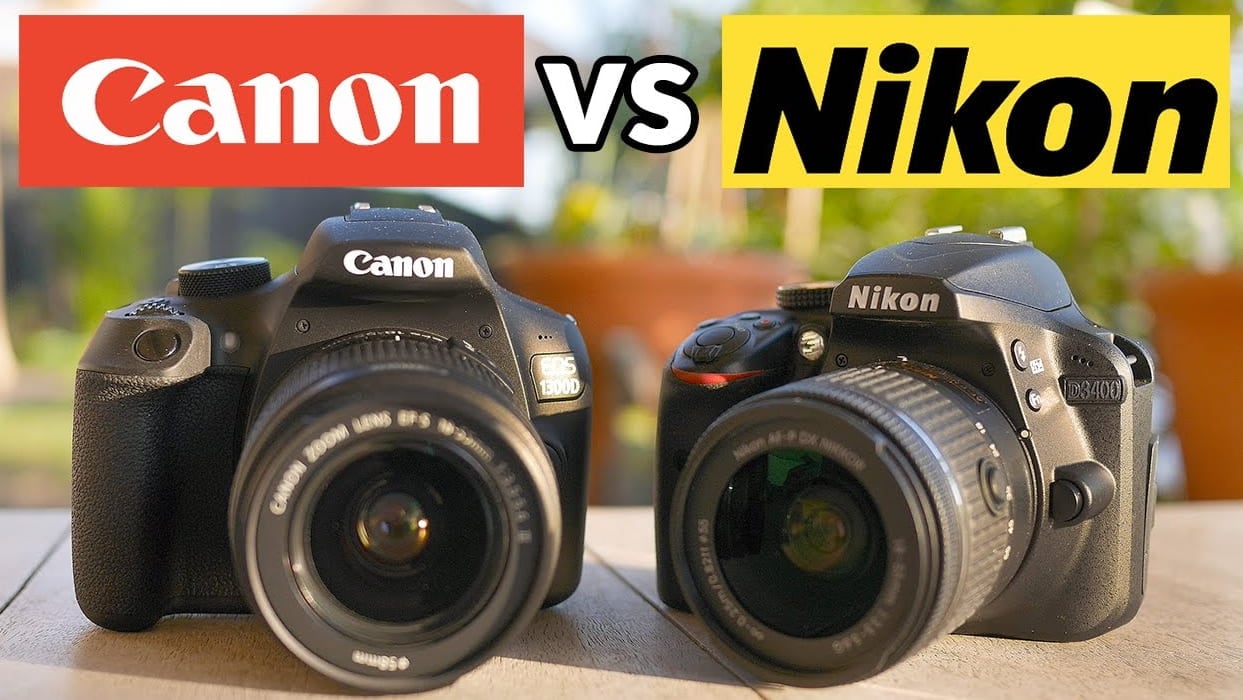
2. What should I know before buying a camera?
You need to ask a few questions listed below before purchase a camera.
- Do you want a prime lens or a zoom lens?
- Do you have a budget in place?
- What sort of memory card will you need to get?
- What kind of microphone do you need? Internal, external, or no microphone?
- What watermark will you use when you share your pictures online?
- Will you be doing any night photography, and, if so, is that camera right for the purpose?
- Where is the tripod socket, and how large of a tripod do you need?
- Does the flash come with it, or do you need to buy a separate one?
Conclusion
If you’re looking for the best camera for beginners, you want to be sure that you do your research and work out precisely what you need to do. In the end, you’ll find what’s best for you and how you want to start taking pictures and videos well.
Are you choosing the best camera for kids? This article will let you know 11 best kids camera for beginner to shoot vlogging videos. We will also include waterproof cameras!
by Max Wales Apr 01, 2024 10:33 AM
Do you know what is bridge camera and the best one to buy? In this article, we will let you know 11 best bridge cameras. Check it out!
by Max Wales Apr 01, 2024 10:33 AM
